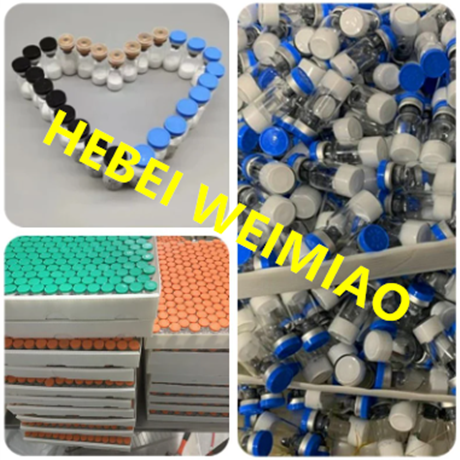
- +86-13363869198
- weimiaohb@126.com

Jul . 27, 2024 07:33 Back to list
Effective Peptides to Target and Reduce Belly Fat for a Healthier Body Transformation
Peptides for Belly Fat A Promising Approach to Weight Management
Weight management is a common goal for many, and with the rise of obesity and overweight issues globally, effective solutions are continually being sought. Among the different methods and substances explored, peptides have garnered increasing attention for their potential role in fat loss, particularly in targeting stubborn belly fat. This article aims to delve into the types of peptides available, how they work, and their effectiveness in managing belly fat.
Understanding Peptides
Peptides are short chains of amino acids that perform various functions in the body. They are integral to maintaining biological processes, including metabolism, muscle growth, and fat regulation. Different peptides have unique roles; some are involved in promoting insulin sensitivity, while others might enhance fat oxidation or reduce appetite.
The Science of Using Peptides for Fat Loss
Several peptides have gained recognition for their potential to aid in fat loss. Some of the notable ones include
1. Growth Hormone-Releasing Peptides (GHRPs) These peptides stimulate the release of growth hormone, which can promote muscle growth and assist in fat burning. Increased growth hormone levels enhance lipolysis, the process of breaking down fat stores, thus making it easier for the body to utilize fat for energy.
2. Alpha-MSH (Melanocyte-Stimulating Hormone) Studies have indicated that this peptide can promote weight loss by regulating appetite and increasing energy expenditure. Alpha-MSH acts on the central nervous system to reduce hunger signals, which can be particularly beneficial for those looking to decrease caloric intake.
peptides for belly fat

3. GLP-1 (Glucagon-Like Peptide-1) GLP-1 is well-known for its role in glucose metabolism and appetite regulation. It has been shown to slow gastric emptying, increase feelings of fullness, and subsequently lead to reduced calorie consumption. This peptide is often studied for its implications in both diabetes management and weight loss.
4. CJC-1295 This synthetic peptide is a growth hormone secretagogue, which means it stimulates the pituitary gland to release growth hormone. By increasing the levels of growth hormone and insulin-like growth factor 1 (IGF-1), CJC-1295 can enhance fat loss and muscle gain, making it a potential candidate for those struggling with belly fat.
The Role of Lifestyle
While peptides show promise, it’s essential to remember that their effectiveness can be significantly enhanced when combined with a healthy lifestyle. Regular exercise, particularly strength training and cardiovascular activities, complements the metabolically active environment created by these peptides. Additionally, a balanced diet focusing on whole foods, lean proteins, healthy fats, and plenty of fruits and vegetables can support the body's fat-burning processes.
Considerations and Conclusion
It is vital to approach peptide use with caution. While many peptides are available through prescription and over-the-counter options, the quality, efficacy, and safety can vary widely. Consultation with a healthcare provider is essential to ensure safe usage and to tailor a strategy that aligns with individual health needs.
In conclusion, peptides present a promising avenue in the fight against belly fat. Their unique mechanisms can aid in fat loss and potentially transform body composition when integrated with a healthy lifestyle. As research evolves, more targeted therapies may emerge, offering individuals even greater tools in their weight management arsenal. Whether for athletic performance or aesthetic goals, understanding and utilizing peptides responsibly could lead to significant breakthroughs in achieving sustainable weight loss.
-
Top CAS: 79099-07-3 Factories & Wholesale Supplier from China
NewsJul.30,2025
-
High-Quality GS-441524 for White Liquid Type Factories & Suppliers
NewsJul.29,2025
-
High-Quality Pharmaceutical Intermediates for Sale – Reliable Supply
NewsJul.29,2025
-
High-Quality Pharmaceutical Intermediates for Sale - Reliable Solutions
NewsJul.29,2025
-
High-Quality Pharmaceutical Intermediates Supplier for Global Market
NewsJul.28,2025
-
GS-441524 for White Liquid Type Factories – High Purity & Reliable Supply
NewsJul.28,2025